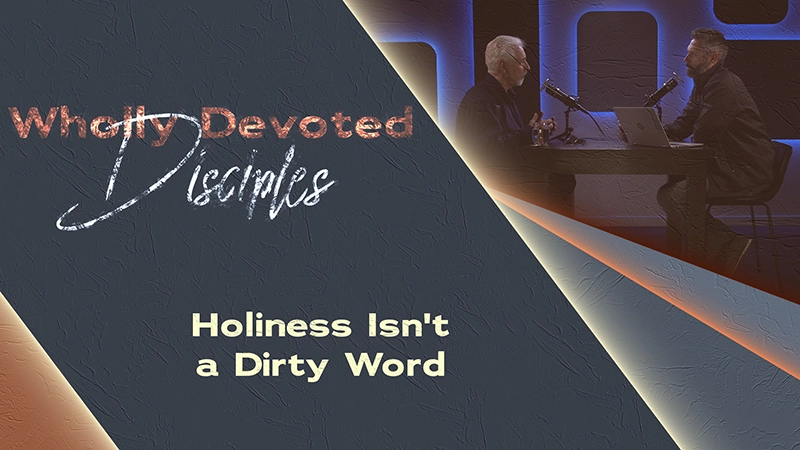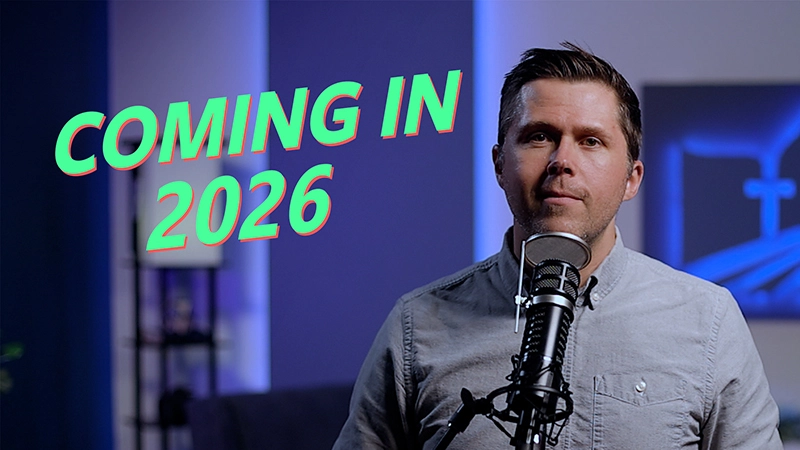
Timeless Truths: True Worship is Reflected Through Obedience
Many people in today's Christian culture claim to be worshipers of God. But true worship is only revealed through a life of obedience. In this Timeless Truths segment, Jeff Colón contrasts the lives of Abraham and King Saul, urging us to reflect on whether our own worship resembles Abraham's wholehearted obedience or King Saul's partial and insincere devotion.
Host: Jeff, we want to continue in our discussion in this series, “Worshiping God,” and one of the things we've lost about the reality of worship, especially in the Evangelical Church in America, is obedience to God. And we learn a lot about that in the story of Noah. Let's talk about that.
Jeff: Yeah. A lot of times we do think of worship in the sense of being in a worship service where people are praising God and singing songs. But really it involves our whole life. We see that in the life of Noah and just how he walked with God.
Host: Scripture tells us that he found favor in the eyes of God. Why was that?
Jeff: Well, it says he found favor in the eyes of the Lord because he walked with God. This means that he was obedient. His life was led by the Lord, and it pleased God to find someone that was willing to let Him order their steps and lead their life. And God can do a lot with someone that's willing to do that.
Host: Jeff, as we talk about obedience, one of the phrases that I heard many years ago was that partial obedience is not obedience, and we see more in Noah than just partial obedience.
Jeff: Yeah, and it really does tie in with worship as we'll see later in the life of Abraham as well. But Noah heeded what God said, and he did all that God commanded of him. Contrast that with King Saul who we see had partial obedience. He was instructed to totally wipe out the Amalekites and leave no one living and to take no spoils, but he only partially obeyed. Then, when the Samuel the prophet confronted him, he said, “God doesn't delight in sacrifice and offering, but in obedience.” That's what God was after. Him doing everything He had told him to do.
Host: Yeah. I know that's something that God continually impresses on me. Not only that God is not interested so much in the sacrifice, but that He's interested in obedience out of our heart. In other words, if you're in ministry, He's less concerned about the ministry work you do and more concerned about the heart that that work comes from. And that may seem like an extreme statement, that God is asking for our full obedience. Many may think, “God is just asking me to go to church on Sunday and for me not to drink or smoke or do drugs.” But really, he wants the totality of our hearts to be given to Him. And that's what we see in Noah.
Jeff: Yeah. If you think about it, if we only obey God part of the time, what are we really saying? We’re saying that we'll obey God when it doesn't interfere with what we really want to do. That's not walking with God as Noah did.
Host: Yeah, it just came to mind that Jesus said, “There will be those on that day who will say, Lord Lord.” And they'll list all the religious things they did, but He really wasn't their Lord. Because they were only doing a few religious things that looked good to other people. But in their hearts, He wasn't the Lord of their life.
Jeff: Right. And we're not talking about perfection here and that you have to do everything perfect, but there should be a general consensus in your life that your life is ordered by the Word of God, even though at times you might miss the mark. But you see it, you repent of it and you're always coming back to the Word of God.
Host: Yes. You know, sometimes in counseling, you'll mention something to someone, and you see the look on their face. It's like, “You're kidding. God would ask me to do that?!” It may be something as simple as giving up a pet hobby or something that's getting in the way of their relationship with the Lord. But we see this kind of dramatic call in the life of Abraham.
Jeff: Yeah, that is so true. To me, it really is a picture of what true worship is, because when you think about Abraham when the Lord told him to offer up his son as a sacrifice, he said to his servant, “We are going to the mountain to worship.” We're talking about him going to sacrifice his son.
Host: But not only his son, it was the promise. It was God’s promise for his future.
Jeff: It was the promise. It was everything he relied on to fulfill God's word to him. Yet it had become something that he was trusting in rather than God and God required it of him. And again, we see what's at the core of worship. Are we really looking to God or are we trusting in something else? Yet we see that he was obedient.
Host: Yea. And one of the wonderful things that comes out of this study is that God requires us to worship, and yet he gives the provision for us to worship. It's just wonderful how God does that for us. Every time I look over the years at how God has intervened in my life to bring me into His presence and to bring me to a place where I can worship Him, gratitude just wells up. And a grateful heart is part of worshiping God too. How important is that?
Jeff: I'm reminded of Romans 1:21, where it says, “They did not glorify Him as God, nor were they thankful.” That led to worshiping the creation rather than the Creator. That’s what happened to Adam and Eve. The serpent deceived them into believing that God isn't good. And when we lose sight of that, it really does lead us away from worshiping God the way we ought to with our lives. And we're commanded in Scripture to be thankful in all things.
Host: You know, in line with that Jeff, before the Tabernacle came about even, every time God did something for His people, He instructed them to make an altar. And they had altars for that reason, didn’t they?
Jeff: Yeah. It was a place where they could remember that mercy. And for us it points to Christ and not losing sight of what Jesus has done for us. And that really is the basis for our gratitude.
Host: Yeah. In fact, in the study we were looking at, they mentioned that those alters really were a type for the Cross. It was a picture of the sacrifice to come.
Jeff: For me, it doesn't take much reflection on what Jesus has done for me to stir a grateful heart inside of me. When I take time to express gratitude to the Lord, it's an act of worship to Him.
Host: Yes. I remember when I came into the Residential Program here at Pure Life, it was difficult for me. And no big surprise that when we're living a life of sin and self-will, we don't have a heart of gratitude. But as God begins to cleanse you and purge you of your idols and begins to open your eyes again, you realize that He's done so much for you and continues to do so much for you.
Well, Jeff, as we close this discussion today, let's kind of tie it up with something that I think we need to touch on that we can learn from. And that is the obedience of Noah and also the willingness of Abraham to sacrifice his son.
Jeff: Well, what we learned is that there's a cost in our worship with the Lord, yet He saved Noah and His family. He opened the way of blessing for Abraham. So, it brings a blessing with it when we obey the Lord and we worship Him in that way. And then we have reason to be grateful. And it all ties together. It really is a wonderful cycle if I could say it that way that just continually enhances our worship and actually makes us want to worship Him more with our lives.
Host: And it of course ultimately points to the greatest cost ever paid and that was the sacrifice of Jesus, which is our greatest reason to be grateful and to worship.

















